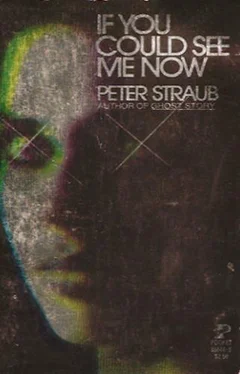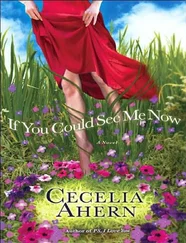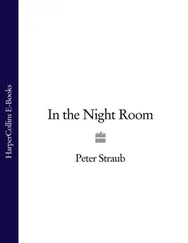“If I swore at you, I apologize,” I said.
The men sat staring at me. I could feel violence thickening about them, not sure which way to flow or whether to flow at all.
“Get the shit out of here, wiseass,” the young man said. “Wait. Frank, get the number of bigshot’s car.” He held up a massive palm in my direction while a small man in suspenders, a natural flunky, jumped up from his stool and ran out and stood in front of my car. Through the window I saw him pull a piece of paper from his shirt pocket and write on it.
My friend lowered his meaty palm. “I’m taking that number to the police,” he said. “Now are you gonna sit and bullshit me some more or are you gonna leave?”
I stood up. There were three of them, not counting no ‘count Frank. Sweat glissed coldly down my sides. In Manhattan such an exchange might last fifteen minutes with all parties knowing that they will do nothing more violent at the end than walk away. But the muscular balding blond young man had no trace of New York relish in insult and feigned toughness, and I risked only one further remark.
“I only asked a question.” I hated him, his distrust of strangers and his manner of the village bully. I knew I would hate myself for fleeing.
He looked at me with flat eyes.
I walked slowly past him. All of the men were looking at me now with expressionless faces. One of them edged a contemptuous half inch out of my way so that I could open the door.
“He’s got to pay for that chili,” said Grace-Ellen, coming to life.
“Shut the fuck up,” said her defender. “We don’t need his goddam money.”
I hesitated for a second, wondering whether I dared to drop a dollar on the floor. “Whatever it was,” I said, “I hope it happens again. You deserve it.” Then I wheeled through the door and flipped the little pinwheel catch on its outside and sprinted toward the Volkswagen. Grace-Ellen’s voice was screaming don’t bust that door when I got the car started and drove off.
Five miles out of Plainview, my mind was a stew of fantasies. I imagined retorts witty and threatening, attacks sudden and brutal. I saw a hundred things I might have done, from reasonable discussion to mashing my bowl of chili into Wrinklehead’s face. Eventually, I was trembling so severely that I had to stop the car and get out. I needed release. I slammed the door so hard that the whole car vibrated; then I raced to the back and kicked one of the rear tires until my foot ached. For a while I hammered on the beetle’s engine cover, pounding with my fists, seeing Wrinklehead’s face in my mind. When I was exhausted I half-fell into the dust and grass at the side of the road. Hot sun scored my face. My hands throbbed, and I noticed finally that I had torn a triangular flap of skin from my left hand. The palm was rilling with blood. I clumsily wound my handkerchief around it. When I held the handkerchief tightly, the wound throbbed more but hurt less, both satisfactory sensations. A memory hit me and came pulsing out with my slow blood.
This was a memory of marital disharmony. A memory of disorder. Most of my marriage was disordered, in fact, the blame for which was neither Joan’s nor mine but lay in the mis-mating of two wildly divergent temperaments. It was tomaytos — tomahtos, eether — eyether in every possible sphere. My favorite movies had people shooting guns, hers had people speaking French; I liked to read and listen to records in the evening, she liked parties where she could pick fights with stuffy gents in white shirts and striped ties; I was monogamous by nature, she polyandrous. She was one of those people for whom sexual faithfulness is simply not possible, for whom it would be something like death of imagination. Seven months before Joan died, she had gone through, to my knowledge, five lovers during our marriage, each of them wounding to me: the last of these was one (let’s call him) Dribble. She was swimming with him, drunk, when she drowned. On the occasion I remembered, we had gone for dinner at Dribble’s house. Amidst the usual posters of the time (Che’s iconic face, War Is Unhealthy for Children and Other Living Things) and the paperbacks by Edgar Rice Burroughs and Carlos Castaneda, we ate chili and drank Almaden Mountain Red. Only during the musical part of the evening, while Joan and Dribble were dancing to a Stones record, did I realize that they had become lovers. Once home I became a Mars of the coffee table and the dining room curtains — I had thought we were in a good patch, I felt betrayed. I accused. She denied hotly and then hotly refused to deny. I slapped her. Oh, these errors of an optimistic heart. She gasped, then called me a “pig.” She said that I had never loved her, that I had stopped loving anything but Alison Greening. It was all that could be said, it was a deliberate foray onto my sacred territory. She stormed off to Dribble, I drove to the all-night university library and played clown to students in the corridors. My six years’ marriage was over.
It was the memory of that last messy scene that assaulted me while I sat in the dust beside my car. I almost smiled. It may have been from shame — it makes me blaze with shame, that I struck her — and it may have been in response to an odd and powerful sensation which visited me then. This sensation was, centrally, of freedom: of having a purer vision of myself settling down upon me, of being cast out forever from my old life. It felt like cold air, like blue cold water.
The connection between these two scenes, as you will have noticed, is anger — as it was anger, I only now observe, which rebounded back on me to grant the sensation of a central freedom. Anger is an emotion not typical of me. Generally, I mess through life, seeing everybody’s point of view. But the month to come, certainly the strangest of my life, brought as much anger as it did fear. In my normal life, back on Long Island, I was shy and something of a clown, a clown from shyness. Since my adolescence, there seem to have been secrets of competence and knowingness from which I was locked away. Innocently, I had always imagined that anger created its own moral authority.
I rose from the dust and got back into the car, breathing hard. Blood had seeped through to the outer layers of the handkerchief, and I was vaguely aware of blood on my shoes, which I scuffed against the backs of my trouser legs. An echo of a dream caught in my mind, dislocating and severe. This I shook off by attempting to start the car. My assault on the engine must have offended the touchy little motor, because it sputtered and tut-tutted a long time and then eventually flooded. I sat, still breathing noisily, for a while and then tried it again: it chuffed, and went back to work.
When I had gone about half of the distance to Arden I turned on the radio and twisted the knob until I found the Arden station. Then I discovered what the peculiar scene in the diner had been all about. My up-to-date reporter, Michael Moose (so it sounded), was coming to me with the news and all the news on the hour and the half-hour with a full five minutes of local roundup and world events. In his deep hollow announcer’s voice, he said, “Police report no progress yet toward discovery of the perpetrator of the most shocking crime in Arden’s history, the sex-murder of Gwen Olson. The discovery of the body of the twelve-year-old sixth-grader was made early this morning by fishermen crossing a deserted area of waste ground near the Blundell River. Chief Hovre reports that he and his team will be working on this case full time until it is solved. A bare eight hours since…” I turned it off.
Though any urban American gets this story with most of his breakfasts, it was not callousness that made me switch off the radio, but the flicker of a penetrating certainty — the certainty that I would be seeing Alison Greening again, that she would honor a pact we had made twenty years before. My cousin, Alison Greening — I had not seen her since that night, when the consequence of a nude swim had been our total separation.
Читать дальше












